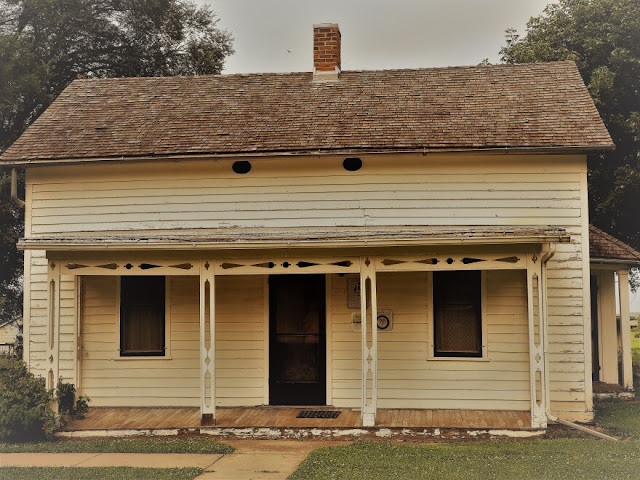 |
| Grote Kerk, Dortrecht |
In effect, had Flanner O'Connor been asked, she might well have said that first and foremost, she was a Southern writer. She was, in origin, from somewhere far beneath the Mason/Dixon, Milledgeville, Georgia, heart of Dixie. She most certainly would turn on a dime if you chose to place her anywhere else.
But just as consequential to her stories as her being from Georgia, as her being a real Southern woman, was her faith, her Roman Catholic faith specifically, as her stories openly confess. She was a Christian writer, although I'm not entirely sure she would have appreciated that particular distinction. More than anything else bound and printed, her stories convinced me that Christian writers need write for more than a flannelgraph.
For example, this Easter morning, consider the very famous and much-loved story, "A Good Man is Hard to Find." The woman at the heart of things considers herself highly moral in all walks of her life. She graciously accepts thinking of herself as a woman of high bearing--she's not just trash, after all.
When she and her family get lost and suffer an accident, the men who stop to investigate are murderous thugs on the run, which the family slowly and dimly comes to understand.
When the veil drops, Grandma blurts out her discovery, which, sadly--O'Connor was not in the least shy about violence--leads to them, all of them, dying. As they do--the gun shots ring off-stage--Grandma continues to talk to the Misfit, suggesting that she knows where all of this is going. She tells him, time and time again, to pray.
He lets out his life story to her, which wasn't rosy, explains how it was that he was in prison--and not unjustly. "They had the the papers on me," he says. When she preaches, he claims he doesn't need Jesus for anything because he's found he can go it alone and make it.
Two more shots ring out. Grandma is frantic, continues to say that she knows he's a good man, which, of course, he isn't and is willing openly, even proudly, to admit. Then O'Connor has the Misfit give this twisted, chilling testimony:
Jesus was the only one that ever raised the dead. . .and he shouldn't have done it. He thrown everything off-balance. If he did what he said, then there's nothing to do but throw away everything, and if he didn't, then it's nothing for you to do but enjoy the few minutes you got by doing the best you can by killing somebody or burning down a house or doing some other meanness to him.
That twisted testimony is half wrong, of course: rejecting the cross and/or the open grave this Easter morning doesn't make him or anybody else a mass killer.
But what he's right about is the assertion that everything in life depends on faith, the sturdy belief somewhere along the line if Jesus did what he said, there's nothing to do but live by and in that faith.
It's Easter, no more consequential day in the life of the church and each of its believers--not only that, but in life itself.
This morning, I couldn't help remembering that the Misfit kills Grandma, removes his glasses, and admits to his bloody sidekick that there warn't no fun in killing the old lady.
It's a story rich in meaning. O'Connor loved telling her audiences that grace is that mysterious, that when the old lady touched him it was itself the touch of grace.
"If he did what he said, then there's nothing to do but throw away everything."
On this Easter morning the Misfit's line, hard as it is to follow, is no less true, is it?















